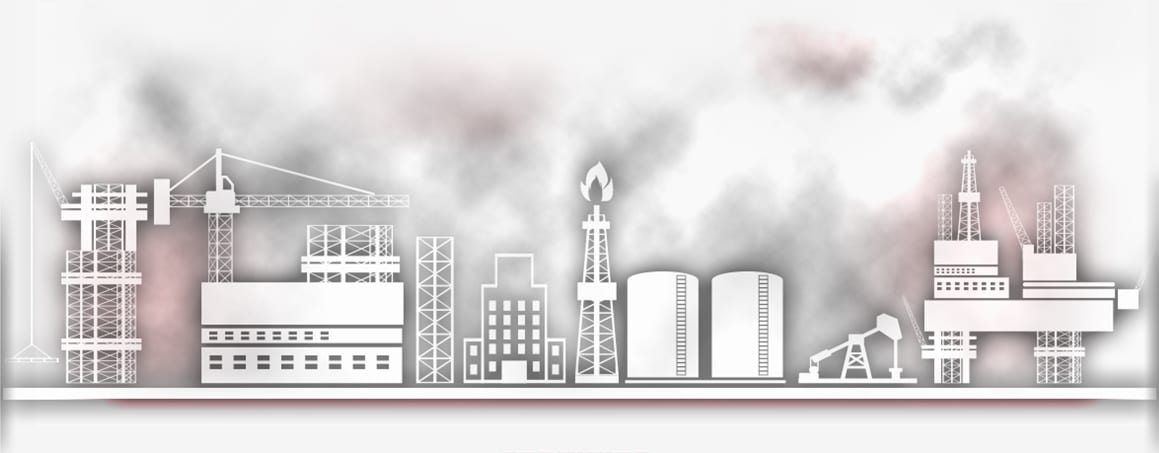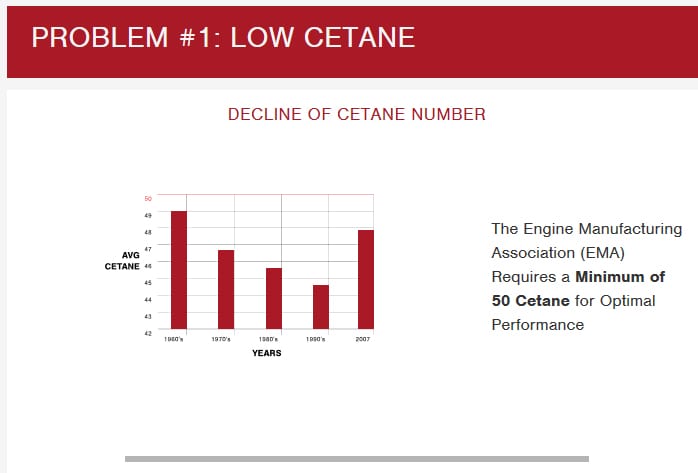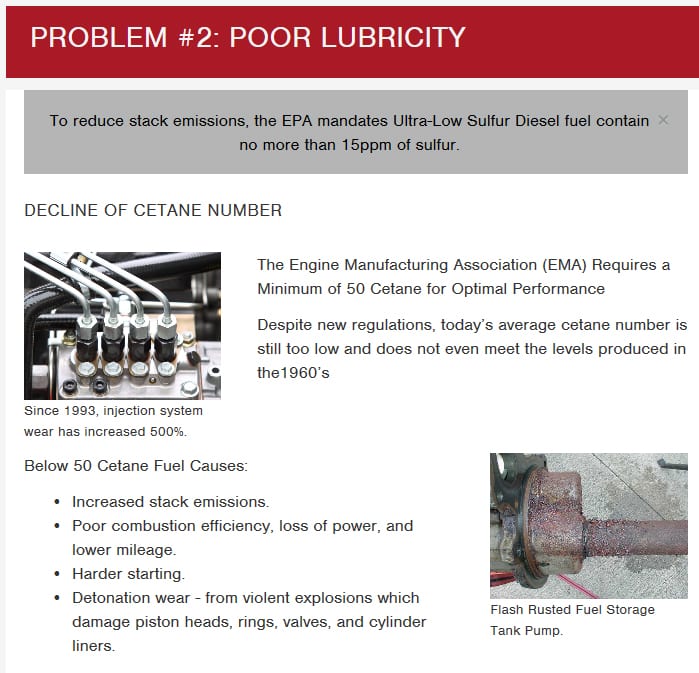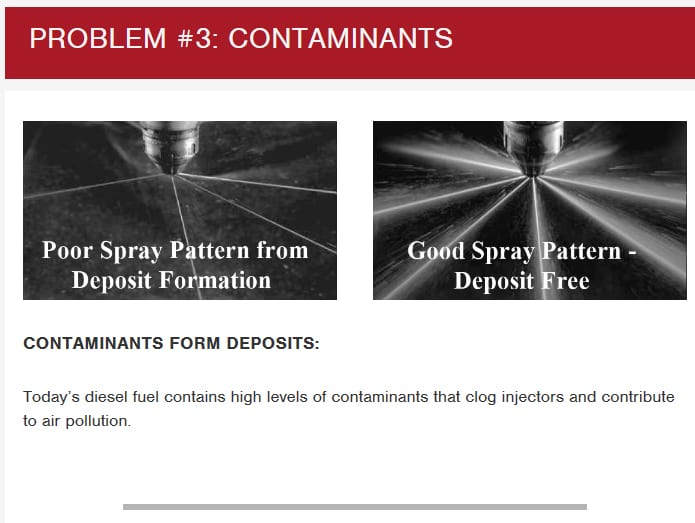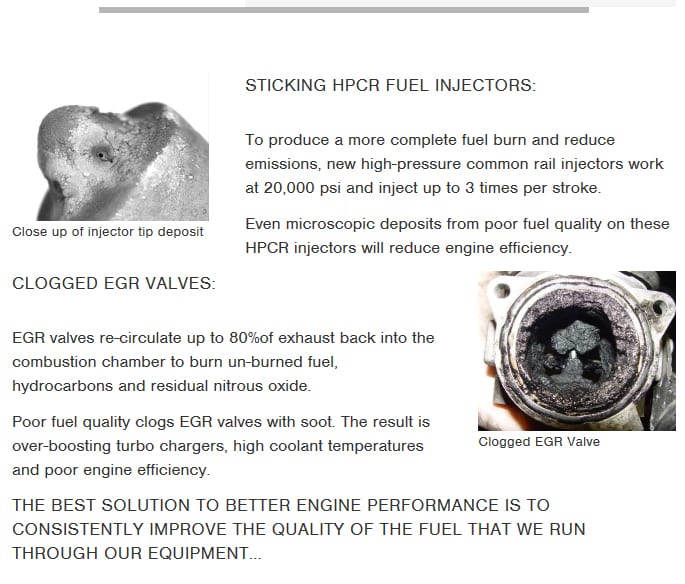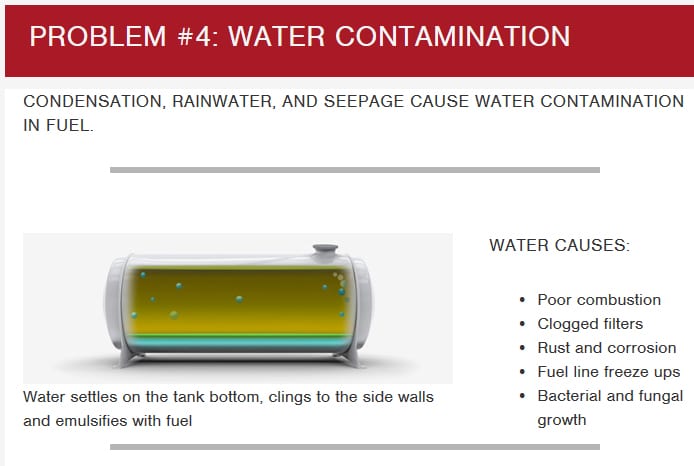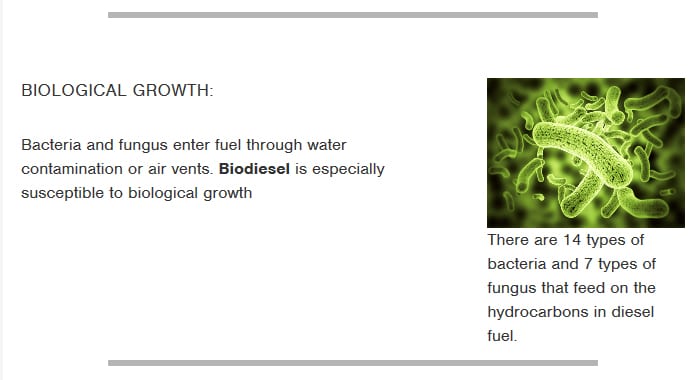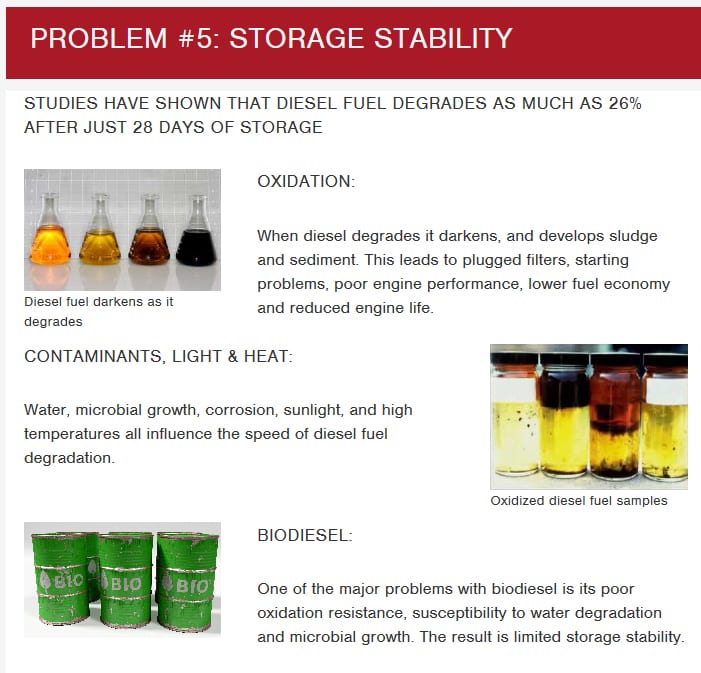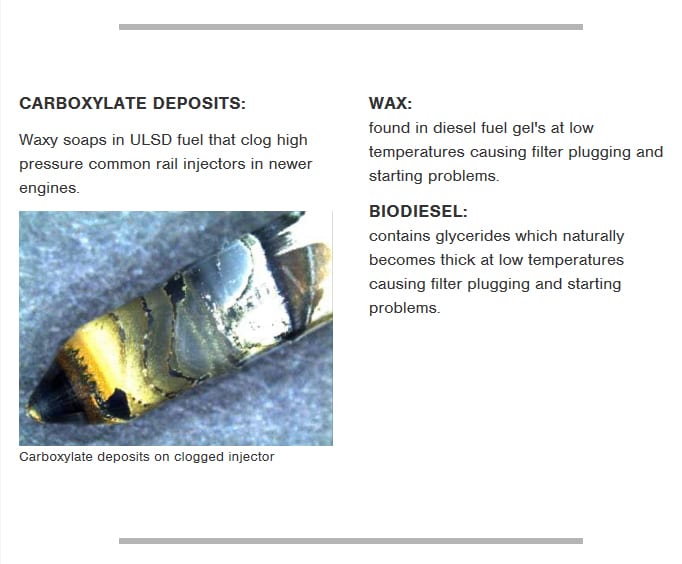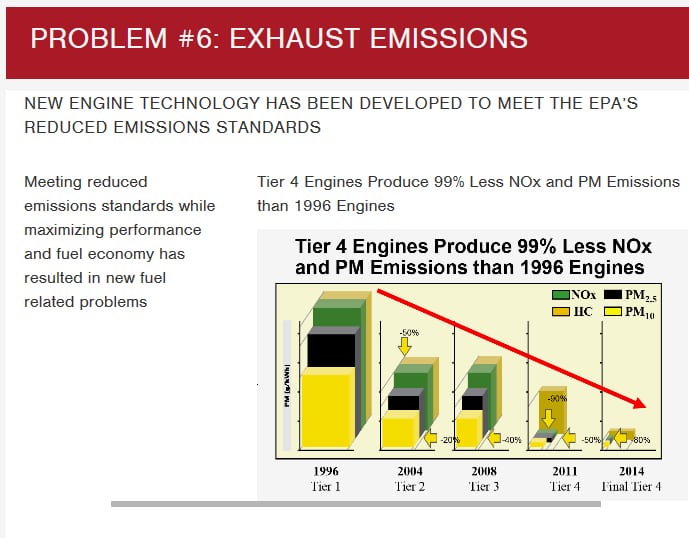Star Oilco Diesel Fuel Quality Assurance
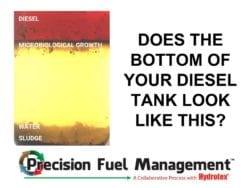
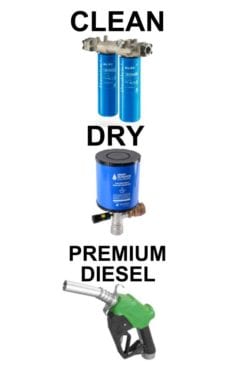
- Diesel Fuel Is Often A Company’s Largest Expense. Unfortunately, there is very little control over its quality.
- Fuel Quality Has Declined over the last 25 years…
- Engine manufacturers have tightened the tolerances for fuel
- Newer tier 4 engines starting from 2008 need cleaner fuel
“Over the last two decades, the cetane number and the API gravity, the basic measures of crude oil quality have declined.”
—Society of Automotive Engineers, (SAE) Bulletin 872243
Cetane number is actually a measure of a fuel’s ignition delay. This is the time period between the start of injection and start of combustion (ignition) of the fuel. In a particular diesel engine, higher cetane fuels will have shorter ignition delay periods than lower cetane fuels.
What is a typical API gravity for diesel fuel? The classic book “Petroleum Refinery Engineering” by W.L. Nelson (4th ed., McGraw-Hill, 1958) gives numbers ranging from about 25 to 40 (with “Grade 1-D” around 40 and “Grade 2-D” around 35). In a Web search using the keywords “diesel” and “API gravity” I found a couple of sites with specs for #2 diesel fuel; these had minimum values of 26 and 30 API gravity. So a reasonable guess would be that typical #2 diesel fuel would have an API gravity of about 35; I’ll let you plug that into the above formula to get the specific gravity.
The densities of petroleum products are traditionally (especially in the U.S.) expressed as “API Gravity” The API Gravity is related to the specific gravity by the equation: API = (141.5/SPGR) – 131.5, where the specific gravity is the density relative to that of water and everything is measured at a temperature of 60 degrees F.
MadSci Network © 1997, Washington University Medical School
“Diesel fuel quality has deteriorated for the past 20 years and is expected to continue this trend for the foreseeable future.”
American Society for Testing and Materials, (ASTM) Pub. # 10056
COMMON PROBLEMS WITH 21st CENTURY DIESEL FUEL IN THE PACIFIC NW
The odds are stacked against the fleet owners
what can be done to help alleviate or control the problems?
you have questions, we have the solutions, call us to find out.
If you have bulk fuel storage, the first step is testing your tank bottom and what is coming out of the nozzle. Star Oilco can do a complementary ASTM and ISO specification analysis of your diesel fuel. If you are seeing recurring fuel system issue, the first step is to make sure your bulk storage isn’t the problem. We can help.
Tank Testing Form



